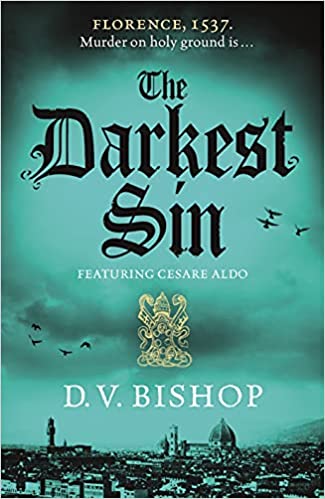Why a Booktrail?
1537: Florence. Spring

1537: Florence. Spring
When Cesare Aldo investigates a report of intruders at a convent in the Renaissance city’s northern quarter, he enters a community divided by bitter rivalries and harbouring dark secrets.
His case becomes far more complicated when a naked man’s body is found deep inside the convent, stabbed more than two dozen times. Unthinkable as it seems, all the evidence suggests one of the nuns must be the killer.
Meanwhile, Constable Carlo Strocchi finds human remains pulled from the Arno that belong to an officer of the law missing since winter. The dead man had many enemies, but who would dare kill an official of the city’s most feared criminal court?
As Aldo and Strocchi close in on the truth, identifying the killers will prove more treacherous than either of them could ever have imagined . .
The author mentions at the end of the novel that the convent of Santa Maria Magdalena and its nuns are his own creation but there were numerous convents xlustered along via San Gallo in the period when the book is set.
Estimates vary but it is believed that one in twenty women in the region were nuns. The author has based their version of events in the book on covents in the 15th, 16th and 17th centuries.
The events of the book are fictional but it is inspired by real incidents and people. Andea Buondelmonti was the Archbishop of Florence from 1532 until his death ten years later. The charcter of Suor Violante was inspired by an incident recounted in the letters of Sister Maria Celeste to her father Galilei.
Twitter: Web:
Back to Results